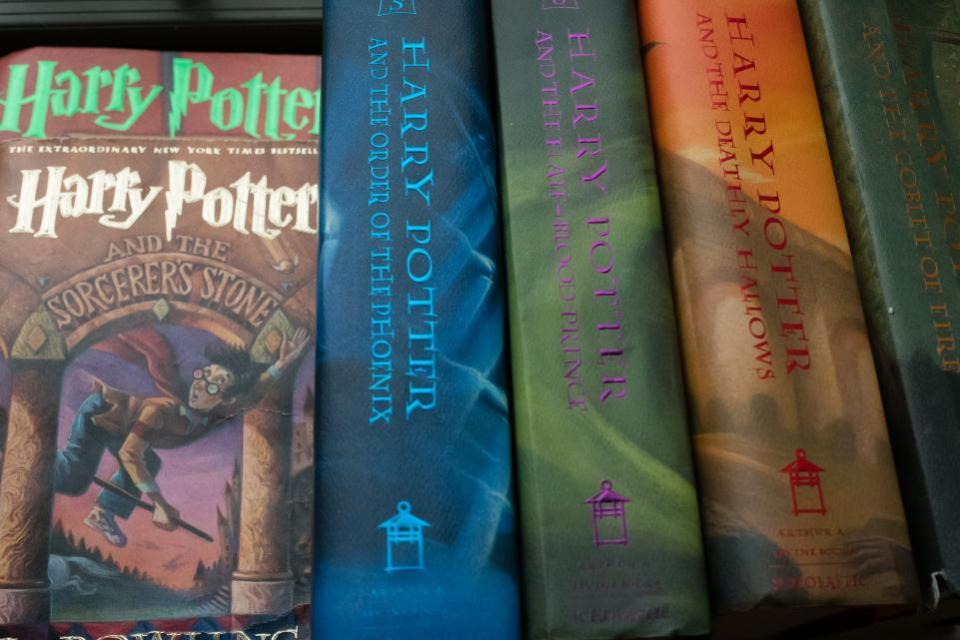Banned Books Week: Harry Potter and the Censors' Wrath
The American Library Association (ALA)’s yearly Banned Books Week, held this year between Sunday September 24 and Saturday September 30, is both a celebration of freedom and a warning against censorship.
Launched in 1982 in response to a sudden surge in the number of challenges to books in schools, bookstores and libraries, the event spotlights the risk of censorship still present across the U.S.
“While books have been and continue to be banned, part of the Banned Books Week celebration is the fact that, in a majority of cases, the books have remained available. This happens only thanks to the efforts of librarians, teachers, students, and community members who stand up and speak out for the freedom to read,” the ALA stated.
The ALA’s Office for Intellectual Freedom (OIF) also compiles a yearly ranking of the Top Ten Challenged Books to inform the public about censorship efforts in schools and libraries across the country. The body considers books challenged when someone requests that access to the book be restricted, for instance that a library remove it. In 2016, the first five books on the list contained LGBT characters and all five were removed from libraries where they were challenged—the 50 percent removal rate that year marked a significant uptick, James LaRue, director of the OIF, told Publishers Weekly.
In the case of Bill Cosby’s Little Bill series, ranking 9 out of 10, the book was challenged on the grounds of the sexual assault allegations against its author.
One of the most challenged books on record is the Harry Potter series, which topped the aggregated 2000-2009 ranking of the decade. J.K. Rowling’s book series about the school years of a young magician fighting against the forces of dark magic, extremism and racism in the wizardry world has faced numerous calls for censorship from some Christian religious leaders who disapprove of the magical world and condemned the books as satanic.
J.K. Rowling recently faced calls to burn her books by supporters of President Donald Trump angered at the author's criticism of the U.S. leader on Twitter—though it wouldn't have been the first time the novels had been set alight.
In March 2001, Reverend George Bender of the Pentecostal Harvest Assembly of God Church in Pittsburgh led his congregation in a bonfire of “ungodly” music, Disney movies and books including the Harry Potter titles. Later that year, another Christian church in New Mexico followed Bender’s example, calling the books “a masterpiece of satanic deception."

A similar fate befell The Wonderful Wizard of Oz by L. Frank Baum, published in 1900. The book was banned in several American libraries in the 1930s and 50s for “ungodly” characters such as witches and flying monkeys. The book faced calls for censorship again in 1986, when a group of seven Fundamentalist Christian families from Tennessee advocated to have the book removed from the public school syllabus.
Herman Melville’s Moby Dick, stirred controversy more than 100 years after its 1851 publication, when a Texas school district banned the book in 1996 because it “conflicted with their community values.”
Even more recently, the first of Arthur Conan Doyle’s Sherlock Holmes novels, the 1887 A Study in Scarlet, was banned by from the reading list of Virginia schools because of its “anti-Mormon” sentiment just six years ago, in 2011.
The U.S., of course, isn’t the only country where books are challenged due to ideological reasons. Anne Frank: The Diary Of A Young Girl was the subject of controversy in Lebanon in 2009, when a Lebanese lawmaker accused the book, a first-hand account of a Jewish teenager persecuted by the Nazi regime, of promoting Zionism. A school in Beirut removed the textbook from its reading list following the comments, but the book remains available in several Lebanese libraries.
Related Articles


